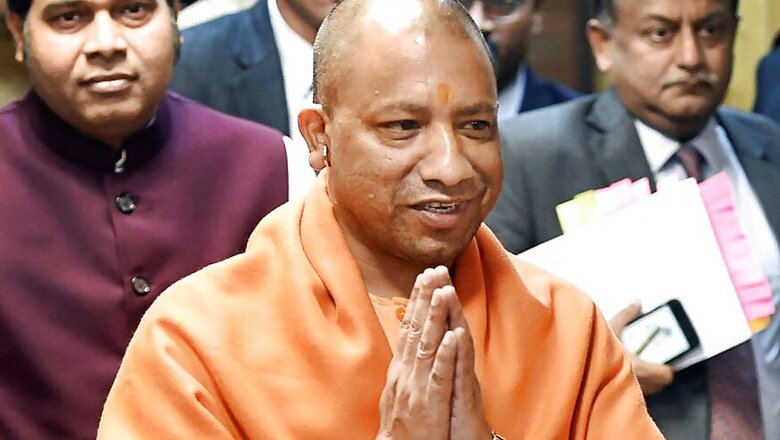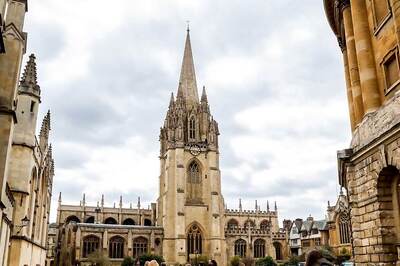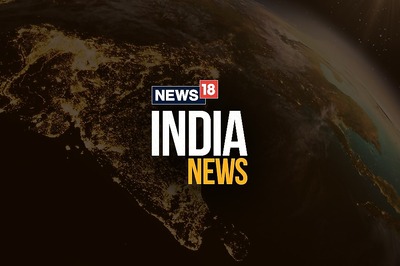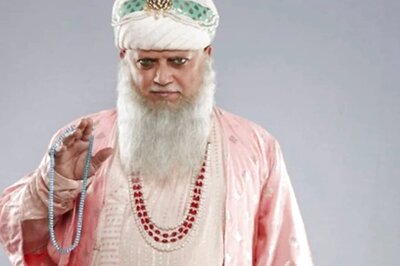
views
New Delhi: The decision of the Yogi Adityanath government last Friday to include 17 Other Backward Classes (OBC) in the list of Scheduled Castes (SC) has already created a political furore in the state.
Bahujan Samaj Party (BSP) chief Mayawati on Monday described the move as a “fraud” because she claimed that these 17 communities “will not receive the benefits of any of the categories as the UP government will not treat them as OBCs. And they won't receive the benefits of belonging to the SC as no state government can put them in or remove them from any of the categories through its orders”.
Mayawati demanded that the “SC category reservation quota be increased so that benefits received by castes in the SC category don't diminish and the 17 castes that will be added to the category also receive benefits”.
In a late-night order, the government had decided to include the following communities to the SC list — Nishad, Bind, Mallah, Kewat, Kashyap, Bhar, Dhivar, Batham, Machua, Prajapati, Rajbhar, Kahar, Pottar, Dhimar, Manjhi, Tuhaha and Gaur.
The move is arguably a win-win for the BJP as it is likely to strengthen its base among these communities that have been demanding SC status for 15 years. This will also create goodwill in the larger OBC community, which will now have somewhat fewer claimants to various benefits while undercutting the caste-based support which is the mainstay of parties like the BSP and the Samajwadi Party (SP).
But the immediate benefits of this move for the BJP could most palpably be felt in the upcoming assembly bypolls in the state. Eleven assembly constituencies are scheduled for bye-elections after their sitting MLAs were voted to power in the Lok Sabha. The move of initiating the inclusion of 17 OBCs in the SC list could, along with an expected cabinet reshuffle, significantly improve the BJP's prospects in the upcoming assembly elections.
“You could say that the move to include these communities in the SC list is a reward for these communities as they wholeheartedly supported the BJP in 2017 and again in 2019,” said Ramesh Dikshit, a Lucknow-based political observer. “And their support will again come in handy in the upcoming bye-elections and pave the road for assembly elections scheduled in 2022.”
However, some other political analysts, like Sanjay Kumar of the Centre for the Study of Developing Societies (CSDS), do not agree with this theory.
“Both in 2017 assembly elections and again this time, these communities, non-Yadav Jats and non-Jatav Dalits, steered the BJP towards success. The BJP doesn't need to appease these communities, so to speak. I don't think we should look at this development in the context of the 2022 assembly elections,” he said.
Kumar doesn't agree with the idea that the inclusion of OBCs will violate the principle of “untouchability”, which was used to identify the communities that were included in the SC list.
But Sirivella Prasad, Congress leader in Tamil Nadu and a Dalit rights activist, argues otherwise. He says that the inclusion of OBCs in the SC list will heighten the conflict between “touchable” and “untouchable” Dalits, which is already brewing in different parts of the country.
“The original idea of including a group of communities in the Scheduled Castes was to uplift them. This is not the first-of-its-kind experiment. Different parties have tried to do this at various times. A result of which is that there are Dhobi SCs in Bihar who may be facing discrimination based on occupation, but they are not untouchables, per se,” he said. “There are Lambada tribals in Karnataka who are included in the SC list. What these things do is create a conflict between touchable Dalits and untouchable Dalits.”
Prasad added that while “touchable Dalits” go on to enjoy greater access to land, political power and employment, among other things, “untouchable Dalits” end up suffering even more.
“Nobody is against providing reservation, but the state has to address specific issues and not move communities around from one bracket to another,” he added.




















Comments
0 comment